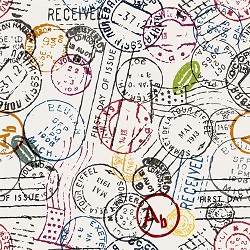
Why We Should Be Asking Ourselves “Why?” More Often
How often do you ask yourself “Why?” It may be the most essential question anyone can ask in both their professional and personal lives. Only by asking and answering that question can we move forward. Unfortunately, too many people or businesses stay on a path based purely on inertia.
To view the full article please register below:
Why We Should Be Asking Ourselves “Why?” More Often
How often do you ask yourself “Why?” It may be the most essential question anyone can ask in both their professional and personal lives.
- Why am I doing this task?
- Why am I doing this task the way I’m doing it?
- Why am I dividing my time the way I am?
Only by asking and answering that question can we move forward. Unfortunately, too many people or businesses stay on a path based purely on inertia (i.e., “because this is the way I’ve always done it…”)
The inertia can be profound and continue for many years—even centuries. Consider one example of historical inertia.
How did we arrive at the track width of today’s modern railway system? Was it some complicated engineering calculation of the most efficient distribution of weight and speed? Not really. Today’s width of the railway tracks is actually a result of the Roman invasion of Britain. As Roman chariots traveled the conquered land, they created deep ruts so that, in later years when a now-freed Britain began manufacturing their carriages and wagons, they made the wheel width to accommodate the roads rutted by Roman chariots. That inertia continued into the Industrial Revolution with the advent of the train. Because the carriage makers had the skills and infrastructure to build railway cars, they became the manufacturers of train cars, applying the same width to train cars that they had used for horse-drawn carriages.
Now, consider how asking “why” led to innovation and new perspectives over the course of human history:
- Why does an apple fall from a tree? Sir Isaac Newton’s inquiry led to the discovery of the laws of gravity.
- Why doesn’t our immune system attack tumors? Nobel-winning immunologist Jim Allison pondered this and his discoveries led to new cancer treatments.
- Why did I (or a business idea) fail? Steve Jobs was fired from the company he founded. His reassessment resulted in NeXT and Pixar, and his eventual return to Apple.
- Why is my candy bar melting in my pocket? The question led Percy Spencer, an engineer at Raytheon who was experimenting with a radar-related vacuum tube in 1945, to his patent of the microwave.
Not all “why” questions need to lead to world-shaking results to be valuable. Asking “why” can help improve your personal life and how your business is run, and free you from the inertia that overtakes our lives.
Please reference disclosures at: https://blog.americanportfolios.com/disclosures/












